Leaf from William of Auxerre, Summa Aurea, France C13th
£1,500.00
Leaf from William of Auxerre, Summa Aurea (on Peter Lombard’s Sentences), in Latin, manuscript on vellum [France or Southern Netherlands (Paris?), 13th century (last? quarter)]
c. 310 × 201 mm, ruled for two columns of 57 lines, written in a gothic ‘university’ hand, with rubrics in red, paraphs alternately red or blue, running titles “L[iber]” and “III” in alternate red and blue letters, one two-line red initial with blue flourishing, recovered from use in a bookbinding, with consequent cockling, creases, staining, small holes, etc.
William of Auxerre (c. 1150–1231) was a French theologian and philosopher, and the first medieval writer to compose a systematic treatise on free will and natural law. His studies included Classical Greek philosophical works, and in 1231 was part of a papal-commissioned team engaged to censor the works of Aristotle. Others had seen these works as corruptive of Christian faith, but William proposed that rational analysis of the faith be allowed. Following this, Pope Gregory IX instructed him to reorganise the plan of theological studies in the University of Paris along such lines, but William died before such plans saw fruition. The present manuscript contains part of his compendium on the four books of Sentences by Peter Lombard, known as the Summa aurea or Summa super quattuor libros sententiarum. It was composed between 1215 and 1220 and treats such theological matters as God as one nature in three persons, creation, man, Christ and the virtues, sacramental worship, and the Last Judgement.
Be the first to review “Leaf from William of Auxerre, Summa Aurea, France C13th” Cancel reply
Product Enquiry
Related products
C12th - C13th manuscripts
Leaf of Passionale in Latin [Italy, 12th century, first half] Lives of St Felicity and St Clement
C12th - C13th manuscripts
C12th - C13th manuscripts
C12th - C13th manuscripts
St Augustine on John 17, the High Priestly Prayer on a huge bifolium C12th, Italy
C14th -C16th manuscripts
[Pope Boniface] Leaf from Sextus Liber Decretalium – early C14th
C12th - C13th manuscripts

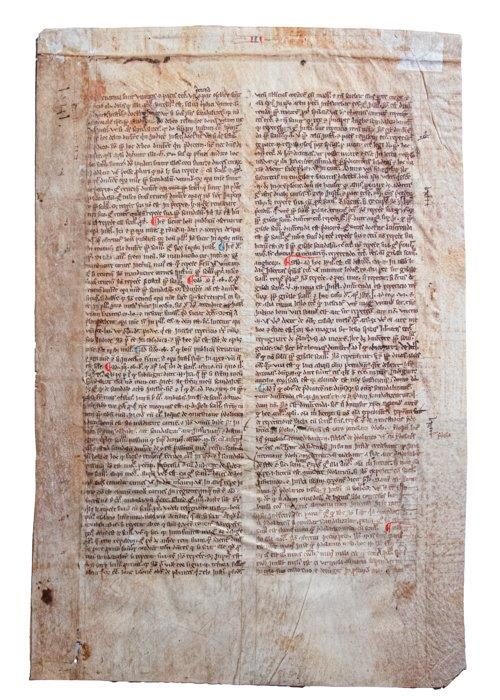

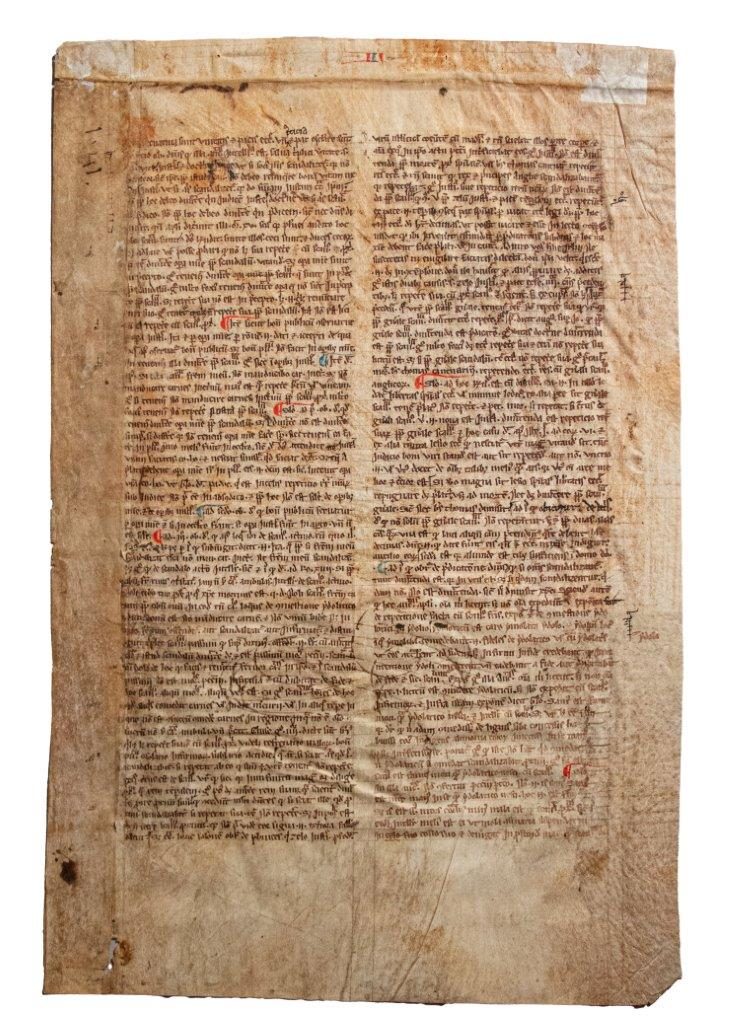
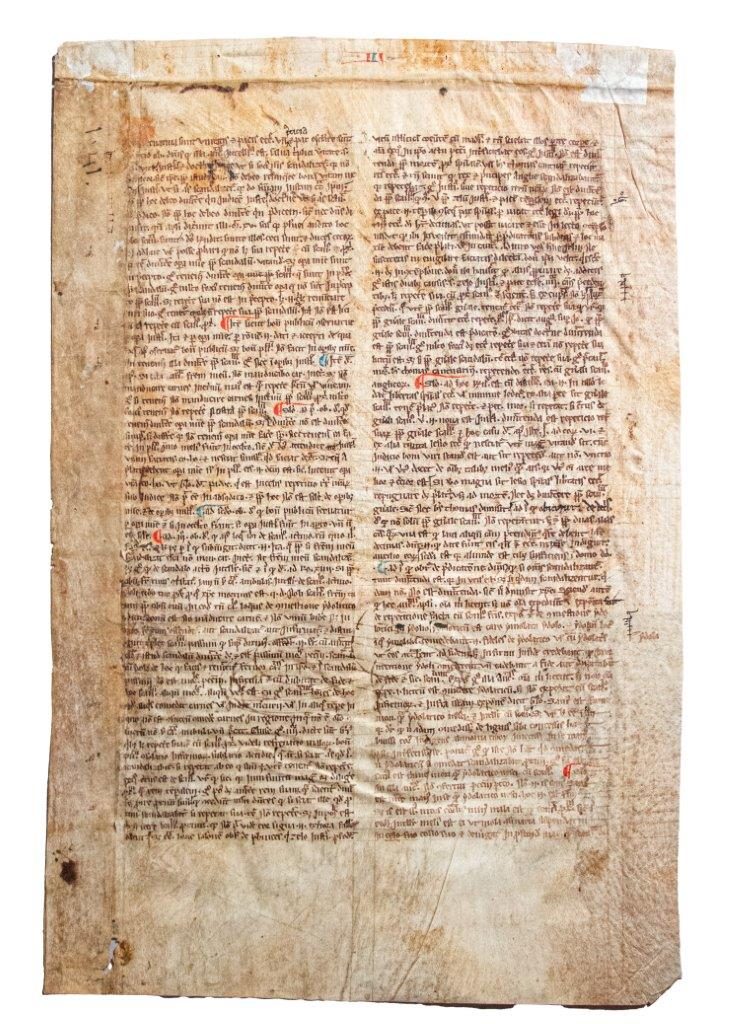
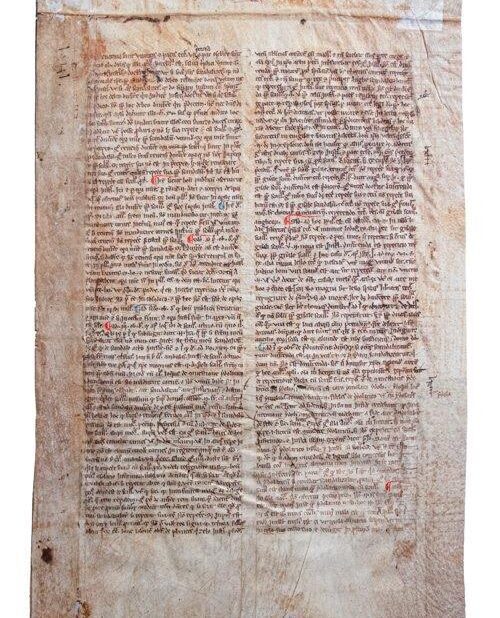
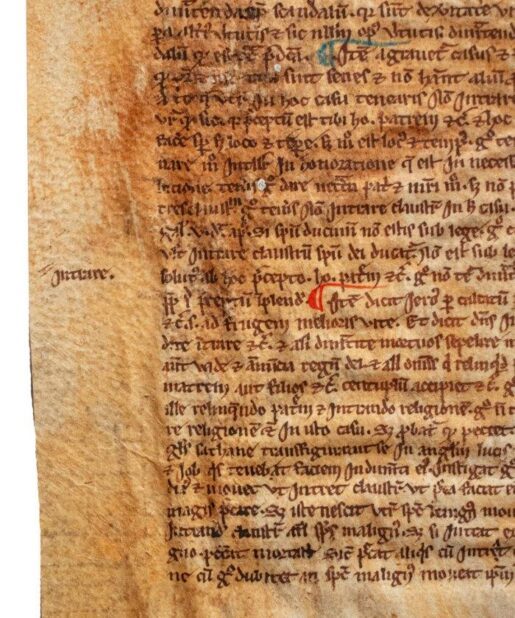
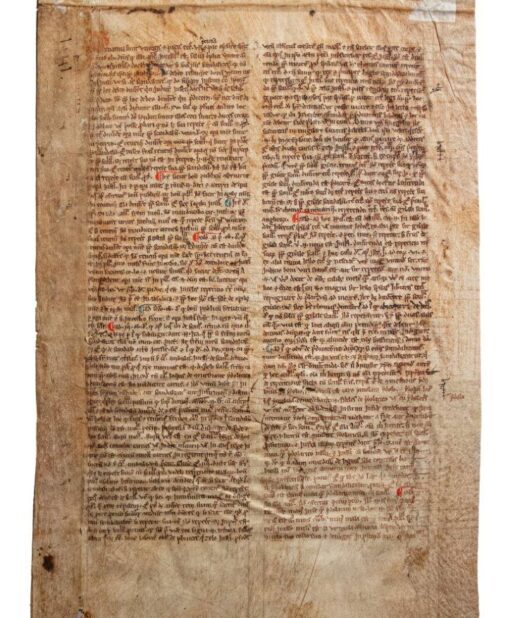
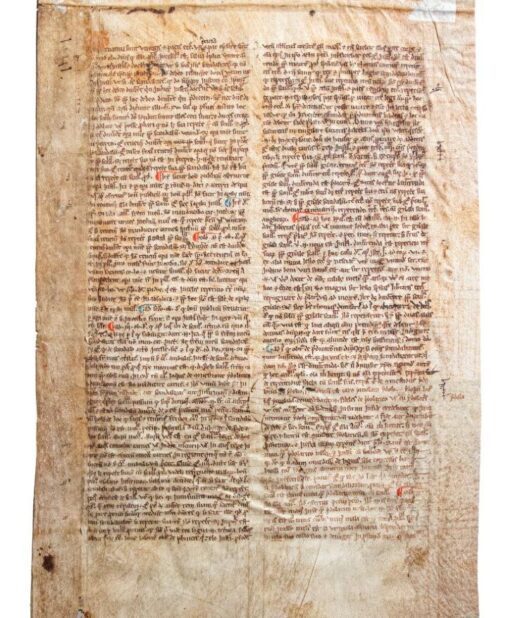
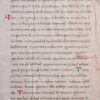
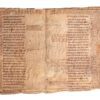
![Leaf of Passionale in Latin [Italy, 12th century, first half] Lives of St Felicity and St Clement Leaf of Passionale in Latin [Italy, 12th century, first half] Lives of St Felicity and St Clement](https://butlerrarebooks.co.uk/wp-content/uploads/2021/01/IMG_0696-515x618.jpg)
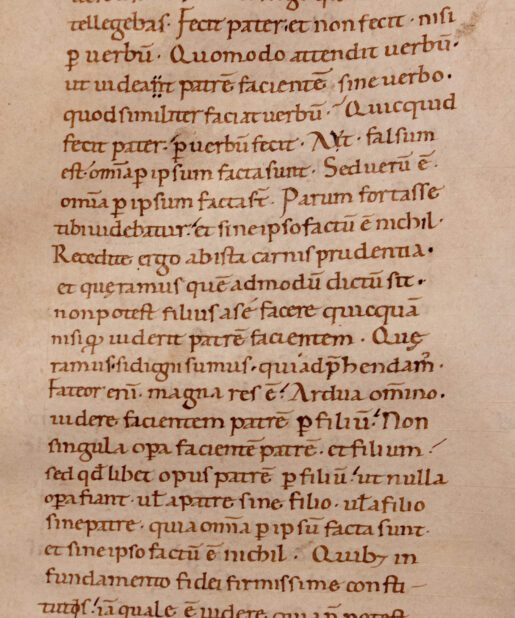
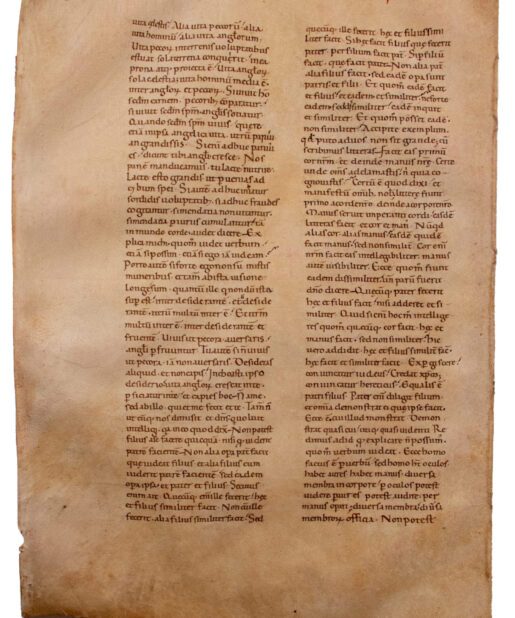
![Two leaves from a Ferial Psalter, in Latin, decorated manuscript on vellum [Germany, mid-13th century] Two leaves from a Ferial Psalter, in Latin, decorated manuscript on vellum [Germany, mid-13th century]](https://butlerrarebooks.co.uk/wp-content/uploads/2024/09/IMG_1174-515x618.jpg)
![Two leaves from a Ferial Psalter, in Latin, decorated manuscript on vellum [Germany, mid-13th century] Two leaves from a Ferial Psalter, in Latin, decorated manuscript on vellum [Germany, mid-13th century]](https://butlerrarebooks.co.uk/wp-content/uploads/2024/09/IMG_1172-515x618.jpg)
![The Model for 15th-Century Humanistic Script and Decoration – A large bifolium from a decorated Lectionary, in Latin [Italy, 12th century, first half] The Model for 15th-Century Humanistic Script and Decoration – A large bifolium from a decorated Lectionary, in Latin [Italy, 12th century, first half]](https://butlerrarebooks.co.uk/wp-content/uploads/2021/04/IMG_0688-515x618.jpg)
![The Model for 15th-Century Humanistic Script and Decoration – A large bifolium from a decorated Lectionary, in Latin [Italy, 12th century, first half] The Model for 15th-Century Humanistic Script and Decoration – A large bifolium from a decorated Lectionary, in Latin [Italy, 12th century, first half]](https://butlerrarebooks.co.uk/wp-content/uploads/2021/04/IMG_0686-515x618.jpg)
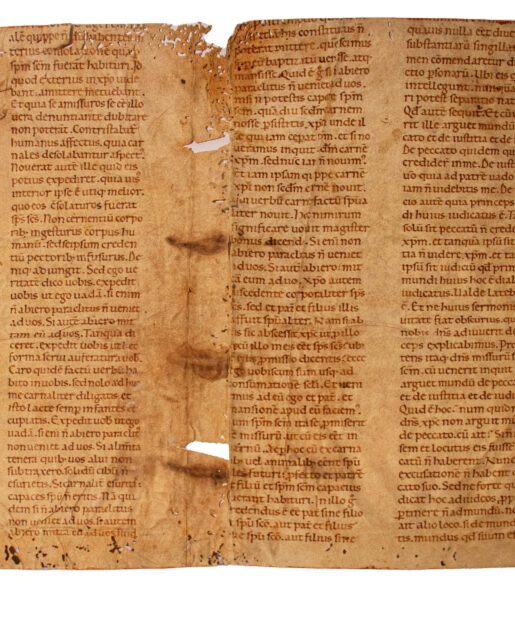
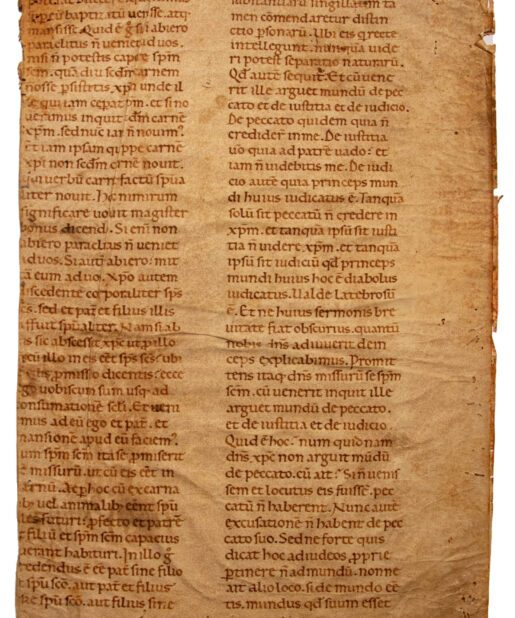
![[Pope Boniface] Leaf from Sextus Liber Decretalium – early C14th [Pope Boniface] Leaf from Sextus Liber Decretalium – early C14th](https://butlerrarebooks.co.uk/wp-content/uploads/2020/07/IMG_4329-515x618.jpg)
![[Pope Boniface] Leaf from Sextus Liber Decretalium – early C14th [Pope Boniface] Leaf from Sextus Liber Decretalium – early C14th](https://butlerrarebooks.co.uk/wp-content/uploads/2020/07/IMG_4328-515x618.jpg)
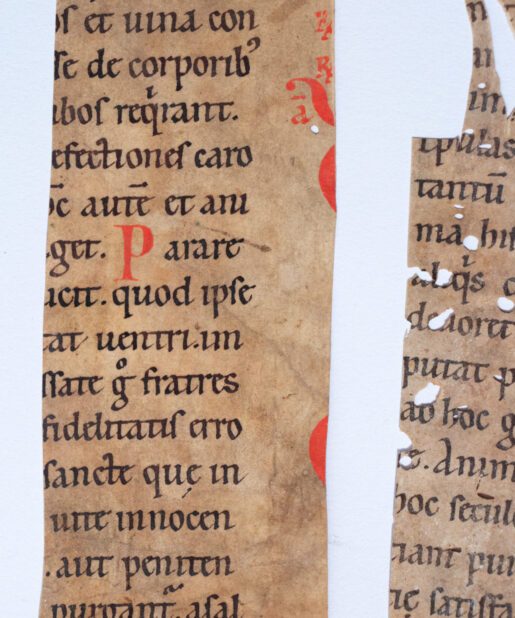
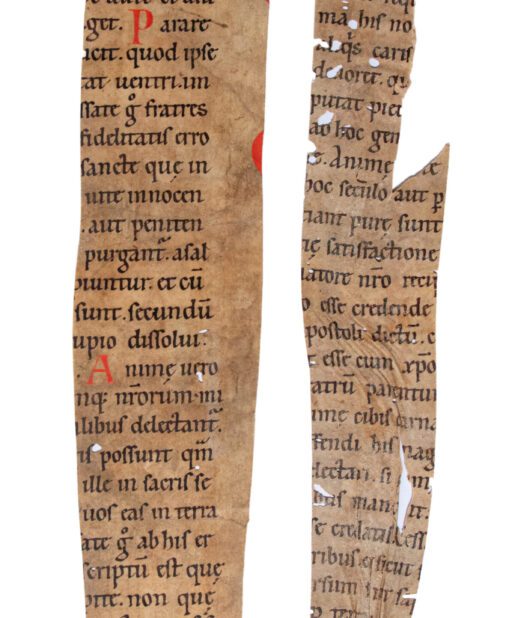
![Pontifical, service book for use by a bishop, in Latin [France, mid- to third quarter of the twelfth century] Pontifical, service book for use by a bishop, in Latin [France, mid- to third quarter of the twelfth century]](https://butlerrarebooks.co.uk/wp-content/uploads/2024/09/IMG_0290-515x618.jpg)
Reviews
There are no reviews yet.